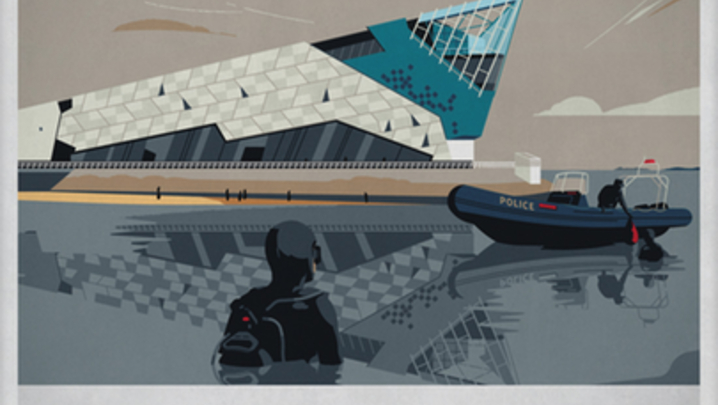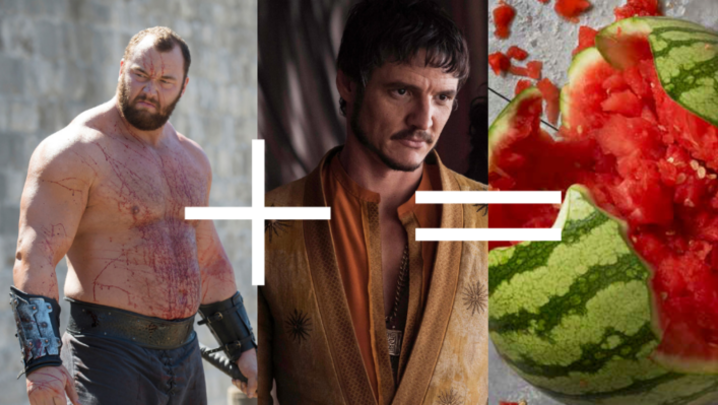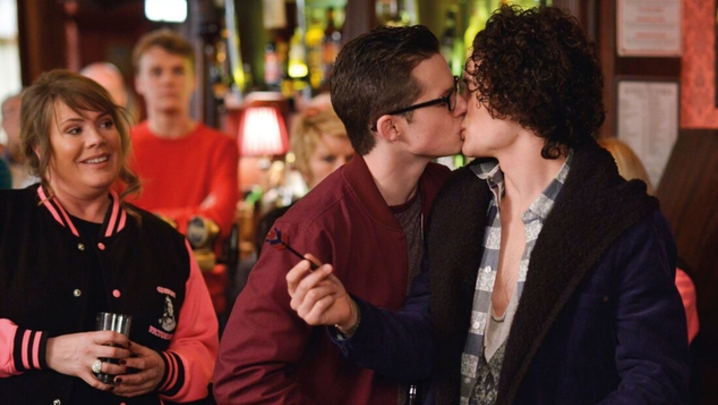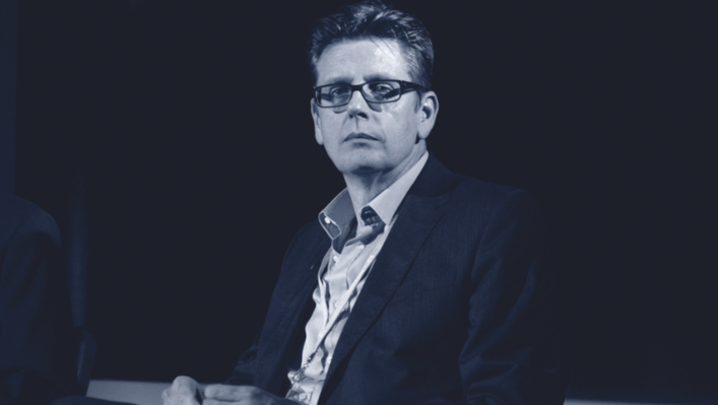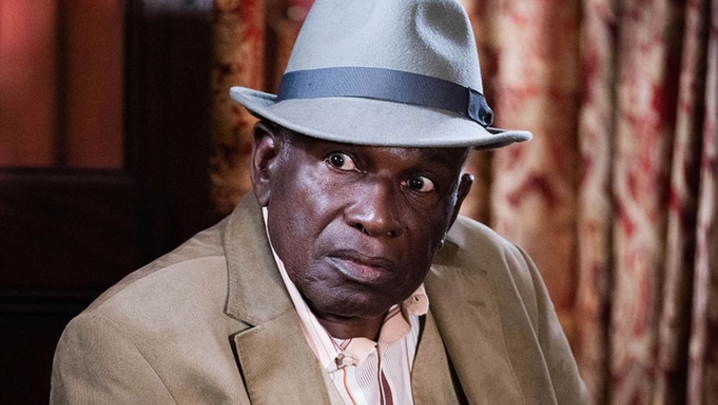Huw Kennair-Jones commissions new drama at ITV, as well as keeping a close eye on two of the nation’s biggest soaps, Coronation Street and Emmerdale. Recently, he’s been hard at work on upcoming dramas Until I Kill You and After the Flood.
What does the job involve?
Working with the brilliant producers and writers we have in this country, we look for dramas that we think people will watch and love on ITV – and then we facilitate the producers to make them. We’re out there telling people what we think might work for ITV, and the producers also come to us with great ideas.
We want ideas that will surprise and challenge us, so we’re not simply doing the same thing over and over again.
What was your route into TV?
I was a not a very good theatre actor and terminally out of work. A friend of mine was in the Sky football soap Dream Team and he used to stay with me because they filmed in south-east London near where I lived. One day, they needed someone to photocopy the scripts, so I did that. I became a script assistant, then a script editor and then joined the BBC; eventually, I became a producer on shows such as Holby City and EastEnders.
Are you a frustrated actor?
Absolutely not! I knew from early on that I wasn’t the best actor in the world, although I had a good run. It was a useful experience, though, because I read a lot of plays and, by a kind of osmosis, I learnt about structure and dialogue. That has proved really useful.
How did you get into commissioning?
I covered the maternity leave of a commissioner at Sky in the days when it wasn’t making much drama. Sky started to increase its drama output and I ended up staying there for six and a half years – it was a great experience. The first commission I was involved with was Thorne, a crime series starring David Morrissey, based on Mark Billingham’s books.
Do you have to produce before you can commission?
Having a knowledge of production helped me – you can see certain situations coming down the line – but I don’t know if it’s vital; not every commissioner has been down the producing route.
Before joining ITV in 2017, you were editor of BBC Radio 4’s The Archers. Has that helped you as a commissioner?
Making a lot of 15-minute episodes in a tight turnaround focused my mind. I had to be very sure of the story that we wanted to tell right from the start, which was a very valuable lesson. I love soaps and still work on Coronation Street and Emmerdale.
Who do you work with closely?
My most important relationships are with producers and writers – without them, we can’t do anything. It really is all about the scripts. I work closely with the producers and writers to develop ideas and a script, and then take it to Polly Hill, the Head of Drama, and, if she likes it, we take it to Kevin Lygo, ITV’s Managing Director, Media and Entertainment. He says yes or no; if it’s yes, we make it.
Is this a long process?
It usually takes 18 months to two years from development and commissioning to transmission – the scripts need to be written, then cast and filmed, then the episodes have to go through the edit process.
What have you commissioned at ITV recently?
I’ve been working on Until I Kill You from World Productions, the true story of Delia Balmer and how she survived living with a serial killer, and After the Flood from Quay Street, a thriller set in a community in the aftermath of a flood.
Last year, with Karen Pirie, an adaptation of a Val McDermid book, we took a traditional format – a two-hour crime show – but we had such a brilliant writer, Emer Kenny, and star, the Scottish Bafta award-winning Lauren Lyle, and Simon Heath and the amazing team at World Productions, that we were able to offer a fresh take on the genre.
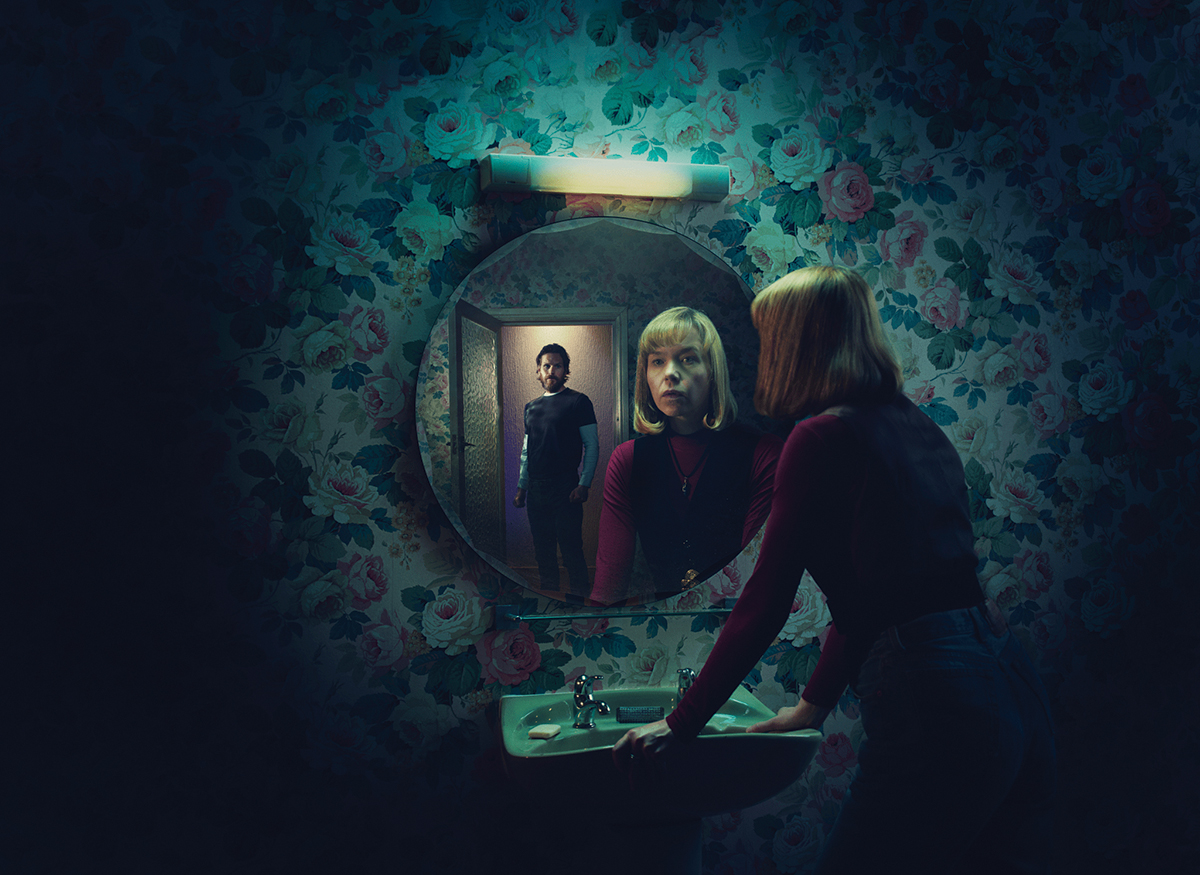
(Credit: ITV)
What makes a good commissioner?
Obviously, a commissioner has to represent the interests of what will work best for the channel. Also, you have to let all the people involved in a drama do their jobs: the producers to produce, the writers to write and the directors to direct – as a commissioner, it’s your job to support them as much as possible so they can do their best work.
You have to respect the time and effort people have put in in the first place, even if it’s an idea that doesn’t end up being right for us. You are dealing with the creative process, which is a very personal thing. We are nothing without writers and producers, and we are so lucky in this country to have such brilliant ones.
Is it tough turning down good ideas?
Sometimes you have to turn down great stuff. We get loads of good ideas and sometimes we have to say no because they may sit in the same place as another show or they might not fit into the current ITV drama landscape.
What do the best pitches get right?
The clarity of the idea. It’s hard enough making TV drama anyway, but if it’s unclear as to what everyone wants to achieve from the outset it becomes much harder.
What do you bring to work with you?
In my rucksack I have a computer, an iPad and a phone and headphones, I need to be able to watch shows, read scripts and talk to people.
What are the best and worst parts of your job?
The best is commissioning stuff, being able to say to people, “We’re going to make this.” The worst is having to turn down really good ideas that just aren’t the right fit.
Has a show ever got away from you?
Many shows start life elsewhere. At Sky, we developed a drama called Utopia. It was brilliant but it wasn’t right for Sky at the time, and then Channel 4 picked it up. I wish we’d been able to see that one through, but I’m glad it got made.
What is the most challenging drama you’ve greenlit?
When I worked at Sky we made a show called Hit & Miss, created by Paul Abbott and starring Chloë Sevigny, about a transsexual hitwoman who had fathered a child before she had transitioned. It was quite a big risk to take at the time. But I was very proud to be involved with it. Norms were different then; it wouldn’t be something we’d think of casting in that way now.
What advice would you give to someone wanting to work in commissioning?
For drama, it sounds obvious but watch everything. Or at least something of everything. Luckily, there’s such a lot of brilliant stuff to watch everywhere.


